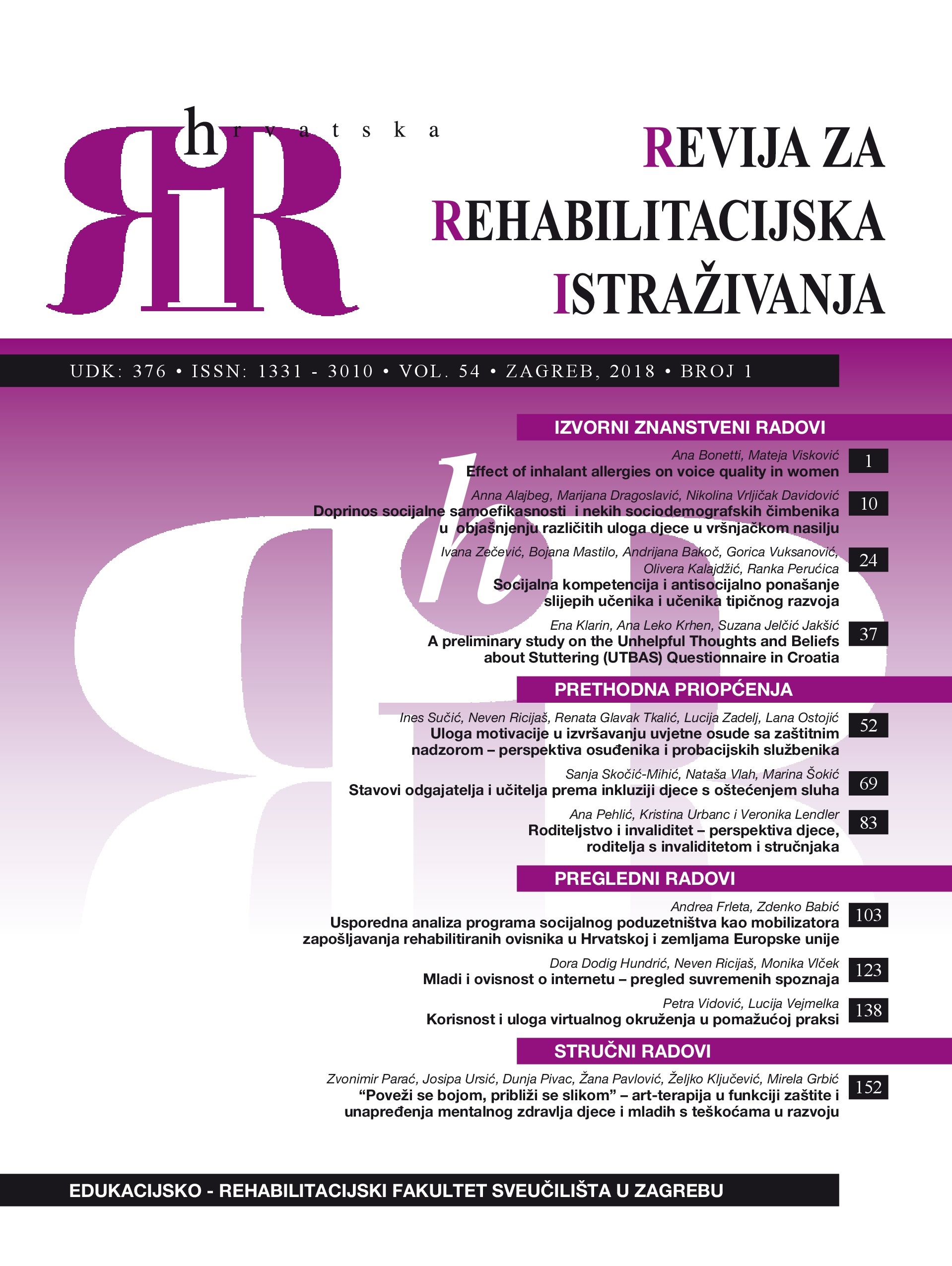Uloga motivacije u izvršavanju uvjetne osude sa zaštitnim nadzorom – perspektiva osuđenika i probacijskih službenika
Role of motivation in serving a suspended sentence with protective supervision: perspectives of offenders and probation officers
Author(s): Ines Sučić, Neven Ricijaš, Renata Glavak-Tkalić, Lucija Zadelj, Lana OstojićSubject(s): Behaviorism, Evaluation research, Criminology, Penology
Published by: Sveučilište u Zagrebu, Edukacijsko-rehabilitacijski fakultet
Keywords: probation; motivation; suspended sentence; protective supervision; probation officers;
Summary/Abstract: When offenders serve a suspended sentence with protective supervision, their probation officers play a dual professional role with the sole purpose of deterring the offenders from further criminal behaviour and thereby reducing the likelihood of recidivism. Probation officers supervise offenders and monitor their compliance with different requirements, while at the same time establishing a high-quality professional relationship and conducting psychosocial procedures to assist offenders in re-socialisation and reintegration within the community. The aims of this research were to explore the perspectives of offenders and probation officers on the role of motivation when serving a suspended sentence with protective supervision, and to gain insights into possible changes in motivation during the serving of such a sentence. Focus groups were conducted with convenience samples of offenders (N=12) and probation officers (N=8). The results revealed that offenders, especially at the beginning of their sentence, showed predominantly extrinsic motivation when fulfilling the formal obligations of the sentence, without recognising their purpose. While serving the sentence, offenders’ motivation changed in intensity and partly in type, primarily because of increasing insight into the usefulness of the sentence, which was promoted by the quality of the relationship with the probation officer and some significant life events. In order to encourage offenders to comply with their sentence and refrain from future criminal behaviour, probation officers used problem-solving skills, combined with skills focused on empowering social capital and personal responsibility for decision-making and personal behaviour.
Journal: Hrvatska revija za rehabilitacijska istraživanja
- Issue Year: 54/2018
- Issue No: 1
- Page Range: 52-68
- Page Count: 17
- Language: Croatian

